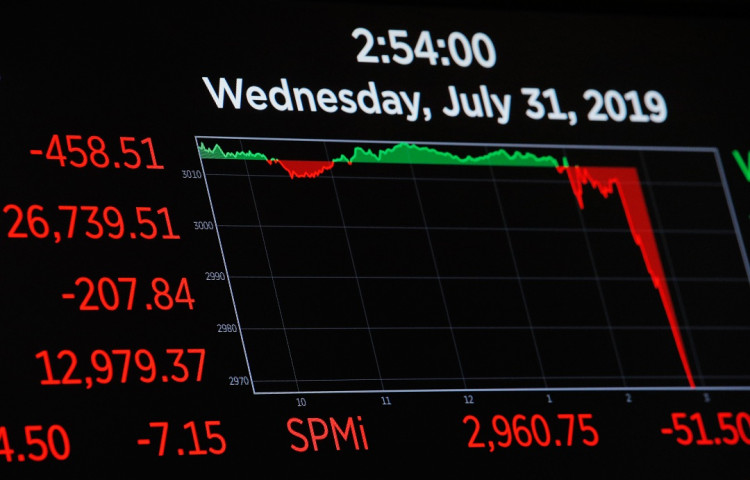The sudden escalation of the trade dispute between China and the United States has wreaked havoc on US markets. The massive sell-off sent major indexes down, with the Dow Jones Industrial Average plummeting by 767 points.
The NASDAQ Composite, which is a proxy for US tech companies, suffered its longest losing streak since 2016.
On Monday, the Dow dropped by as much as 961 points before slightly recovering during the trading day. The index finished the trading day with a decline of 2.9 percent or 767 points. Monday was officially the worst day for the Dow for 2019 and was its sixth-worst drop in history. The NASDAQ Composite finished the day with a 3.5 percent decline, its biggest drop since October 2018.
Other indexes such as the benchmark S&P 500 finished with a 3 percent loss, its worse day for the year.
The NASDAQ Composite, the Dow, and the S&P 500 have all experienced massive losing streaks for the past few days. The biggest losers among the companies on the tech boards were Apple, Microsoft, Intel, Nvidia, and Advanced Micro Devices. The US tech industry is expected to take further beatings in the coming days as the trade dispute escalates.
Markets reacted accordingly following China's decision to devalue its currency. The Chinese Yuan, or Renminbi, fell below the 7-to-1 ratio for the first time in over a decade on Monday.
The move to weaken its currency was seen as the country's way of softening the blow of the US' tariffs on Chinese goods. However, there are now legitimate concerns that US President Donald Trump may impose even higher tariffs in response.
Fears of a possible currency war between China and the United States have understandably shaken investor sentiment on Wall Street. If Trump does decide to retaliate with higher tariffs, the dispute between the world's two largest economies could escalate even further. This would, in turn, result in the likely weakening of the global economy.
There is also the possibility that Trump may decide to devalue the dollar, which could result in the weakening of the US' purchasing power.
Trump accused China on Monday of being a currency manipulator. The president condemned the country's actions and called the devaluation of its currency a "major violation."
Apart from devaluing its currency, China had also announced this week that it was going to be halting its orders of US agricultural goods. The cancellation of the orders will be a big blow to US farmers, who will likely now be stuck with surpluses as China shifts to other suppliers.





